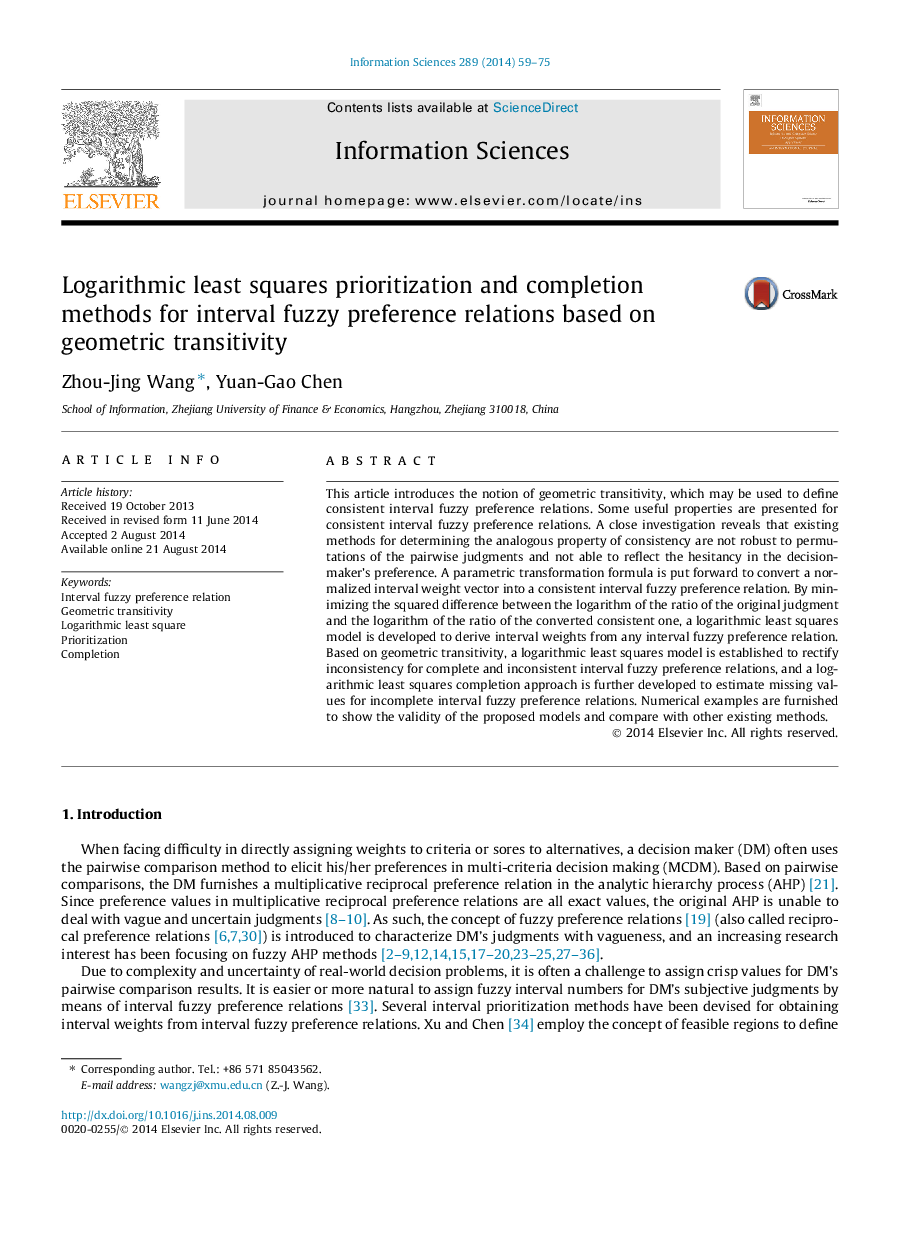| Article ID | Journal | Published Year | Pages | File Type |
|---|---|---|---|---|
| 392366 | Information Sciences | 2014 | 17 Pages |
•A geometric consistency definition is proposed for interval fuzzy preference relations (IFPRs).•The existing consistency definitions for IFPRs are flawed by not being robust to permutations of the pairwise judgments.•A logarithmic least squares model is developed to derive interval weights from any IFPR.•A logarithmic-least-squares-based approach is put forward to estimate missing values of incomplete IFPRs.
This article introduces the notion of geometric transitivity, which may be used to define consistent interval fuzzy preference relations. Some useful properties are presented for consistent interval fuzzy preference relations. A close investigation reveals that existing methods for determining the analogous property of consistency are not robust to permutations of the pairwise judgments and not able to reflect the hesitancy in the decision-maker’s preference. A parametric transformation formula is put forward to convert a normalized interval weight vector into a consistent interval fuzzy preference relation. By minimizing the squared difference between the logarithm of the ratio of the original judgment and the logarithm of the ratio of the converted consistent one, a logarithmic least squares model is developed to derive interval weights from any interval fuzzy preference relation. Based on geometric transitivity, a logarithmic least squares model is established to rectify inconsistency for complete and inconsistent interval fuzzy preference relations, and a logarithmic least squares completion approach is further developed to estimate missing values for incomplete interval fuzzy preference relations. Numerical examples are furnished to show the validity of the proposed models and compare with other existing methods.
